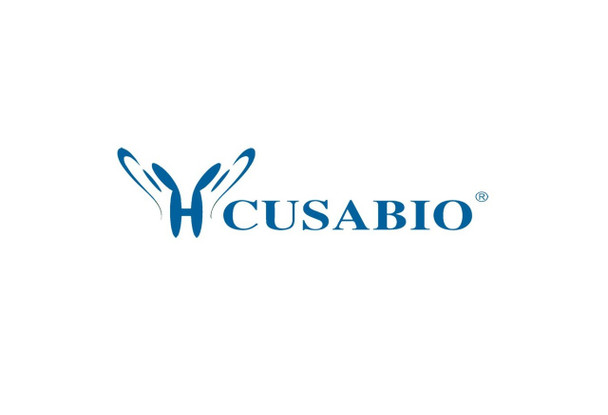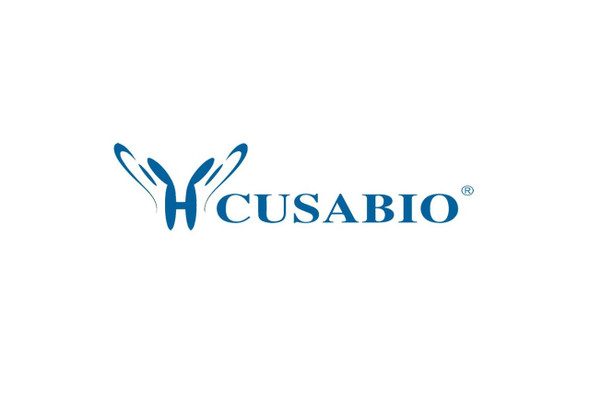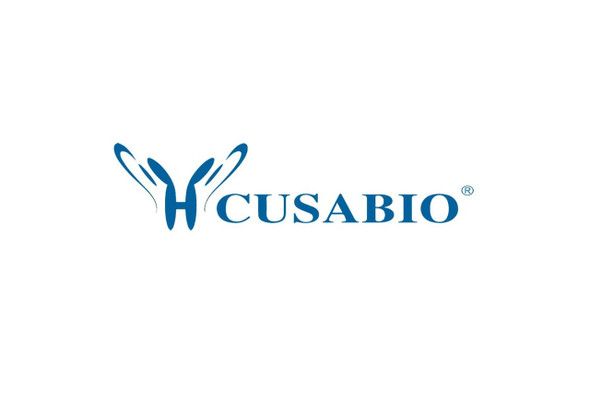Cusabio Human Recombinants
Recombinant Human Glutaminyl-peptide cyclotransferase (QPCT) | CSB-MP019135HU
- SKU:
- CSB-MP019135HU
- Availability:
- 3 - 7 Working Days
Description
Recombinant Human Glutaminyl-peptide cyclotransferase (QPCT) | CSB-MP019135HU | Cusabio
Alternative Name(s): Glutaminyl cyclase ;QC ;sQCGlutaminyl-tRNA cyclotransferaseGlutamyl cyclase ;EC
Gene Names: QPCT
Research Areas: Neuroscience
Organism: Homo sapiens (Human)
AA Sequence: VSPSASAWPEEKNYHQPAILNSSALRQIAEGTSISEMWQNDLQPLLIERYPGSPGSYAARQHIMQRIQRLQADWVLEIDTFLSQTPYGYRSFSNIISTLNPTAKRHLVLACHYDSKYFSHWNNRVFVGATDSAVPCAMMLELARALDKKLLSLKTVSDSKPDLSLQLIFFDGEEAFLHWSPQDSLYGSRHLAAKMASTPHPPGARGTSQLHGMDLLVLLDLIGAPNPTFPNFFPNSARWFERLQAIEHELHELGLLKDHSLEGRYFQNYSYGGVIQDDHIPFLRRGVPVLHLIPSPFPEVWHTMDDNEENLDESTIDNLNKILQVFVLEYLHL
Source: Mammalian cell
Tag Info: N-terminal 10xHis-tagged
Expression Region: 29-361aa
Sequence Info: Full Length of Mature Protein
MW: 41.5 kDa
Purity: Greater than 90% as determined by SDS-PAGE.
Relevance: Responsible for the biosynthesis of pyroglutamyl peptides. Has a bias against acidic and tryptophan residues adjacent to the N-terminal glutaminyl residue and a lack of importance of chain length after the second residue. Also catalyzes N-terminal pyroglutamate formation. In vitro, catalyzes pyroglutamate formation of N-terminally truncated form of APP amyloid-beta peptides [Glu-3]-beta-amyloid. May be involved in the N-terminal pyroglutamate formation of several amyloid-related plaque-forming peptides.
Reference: Structures of human Golgi-resident glutaminyl cyclase and its complexes with inhibitors reveal a large loop movement upon inhibitor binding.Huang K.F., Liaw S.S., Huang W.L., Chia C.Y., Lo Y.C., Chen Y.L., Wang A.H.J. Biol. Chem. 286:12439-12449(2011)
Storage: The shelf life is related to many factors, storage state, buffer ingredients, storage temperature and the stability of the protein itself. Generally, the shelf life of liquid form is 6 months at -20?/-80?. The shelf life of lyophilized form is 12 months at -20?/-80?.
Notes: Repeated freezing and thawing is not recommended. Store working aliquots at 4? for up to one week.
Function:
Involvement in disease:
Subcellular Location:
Protein Families:
Tissue Specificity:
Paythway:
Form: Liquid or Lyophilized powder
Buffer: If the delivery form is liquid, the default storage buffer is Tris/PBS-based buffer, 5%-50% glycerol. If the delivery form is lyophilized powder, the buffer before lyophilization is Tris/PBS-based buffer, 6% Trehalose, pH 8.0.
Reconstitution: We recommend that this vial be briefly centrifuged prior to opening to bring the contents to the bottom. Please reconstitute protein in deionized sterile water to a concentration of 0.1-1.0 mg/mL.We recommend to add 5-50% of glycerol (final concentration) and aliquot for long-term storage at -20?/-80?. Our default final concentration of glycerol is 50%. Customers could use it as reference.
Uniprot ID: Q16769
HGNC Database Link: N/A
UniGene Database Link: N/A
KEGG Database Link: N/A
STRING Database Link: N/A
OMIM Database Link: N/A









